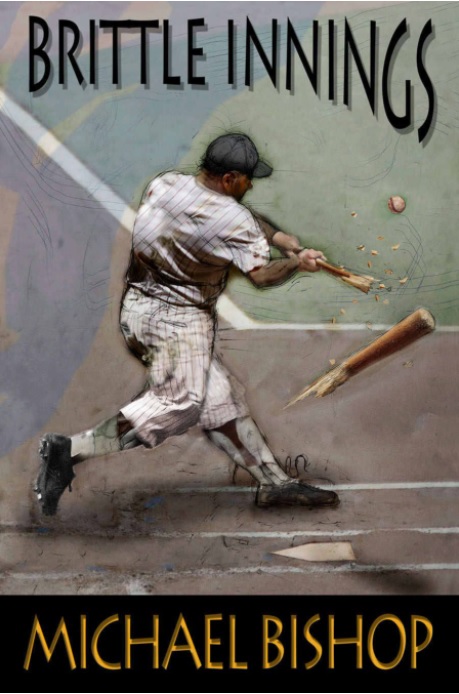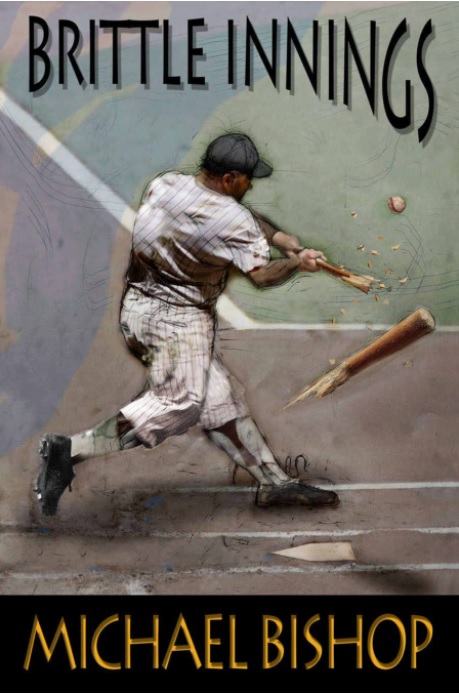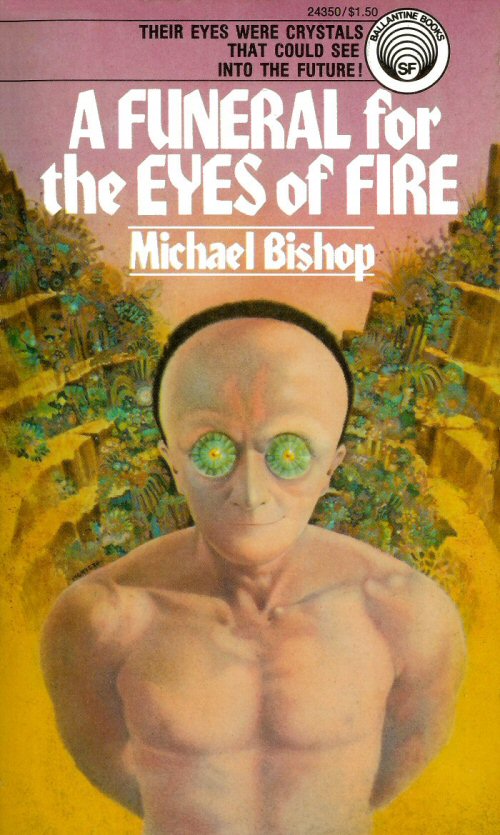
I’m a huge science fiction fan, and, having read a list of what are alleged to be the top 200 science fiction novels, I decided to next tackle a read-through of all the Hugo Award winners and nominees for best novel. Let me know your thoughts and favorites. I’ve marked the winner as well as my own choice for which novel would win, had I the choice among the nominees. I’ve also dropped a short reflection on the year’s Hugo list at the end.
1995
Mother of Storms by John Barnes- Grade: D+
[Content warning: sexual assault, some explicit sexual language.] I was deeply disappointed by this book. There’s no question it had wide acclaim when it was released. In addition to the Hugo nominee, it was also shortlisted on the Arthur C. Clarke, Locus, and Nebula lists for best novel. But the book is brutal. It’s probably lazy to say a book “hasn’t aged well,” so I’ll expand on that a bit. I’ve noticed something of a trend in novels, especially in the mid 80s through mid 90s, featuring a ton of violence against women. Usually, this is used to establish someone is “really” bad because they commit some heinous act like rape. Barnes takes this to another level. Brutal rape, extremely violent sex, fantasies about rape (one character thinks about how they’ve fantasized during consensual sex about it being rape instead), getting off to violence intermingled with sex–all these are acts or fantasies that occur about as frequently the science fiction does. These aren’t just casual uses of the phrase either, the scenes are often extremely explicit. One violent (consensual-ish) sex scene lasted for several pages, talking about the bruising that happened after, and describing all the acts afterwards as well. All of this was done in excruciating detail. Then, wildly, the characters decide to get to know each other and are nonplussed by their previous sex act.
The novel isn’t about any of this, though, it’s about a super huge storm touched off by a nuclear explosion and, it seems, a bit of climate change, that builds in detail through the early part of the novel before becoming a major force through the rest as humans–and near humans?–struggle to fight it, or at least endure it. And those parts of the book are absolutely fascinating. Barnes clearly did a ton of research on storms, and it shows. The scenes in which the storm sparks off, seemingly from such innocent winds here, and a bit of methane there, are captivating. It’s hard science fiction at its best. And as scientists and some cyborg-like people race to find a solution to the storm, the tension rachets up.
Coupling the two sides of the story, the novel reads: rape-storm-explicit casual sex-storm-fantasy about rape-storm-getting off on violent imagery-storm. I don’t think this is an exaggeration as all. There are more than 400 pages of this. It was exhausting. If I were an editor for this, I would have cut basically half the novel out and it would have been a simply fantastic hard sci-fi exploration of a superstorm with some cyberpunk details mixed in. As it stands, it is a frequently brutal read. This was so hugely acclaimed in 1995! Violence against women and sexual violence does not need to be normalized. Full stop.
Mirror Dance by Lois McMaster Bujold (Winner)- Grade: B
Another year, another Bujold win! Personally, I didn’t find Mirror Dance as compelling as some of the other books in the Vorkorsigan Saga, but that doesn’t mean it’s bad. Miles continues to carve out his own space in, well, space, as he has to find his way after being duped by his clone, Mark. Meanwhile, said clone is taking on Miles’s role to try to go free more clones from servitude. The whole thing has a kind of interwoven ridiculousness to it that still somehow works. But, to be fair, it takes a bit away from the story’s strength to have it be so entirely unbelievable at times. Bujold is a strong enough writer that she muscles it through, almost forcing readers to accept that Mark could pull of what he does, and some of the bigger plot reveals help explain it late in the game. I enjoyed this read, and the whole series.
Beggars and Choosers by Nancy Kress- Grade: A
Kress’s sleepless series continues to impress. In this second book, society has effectively been broken into 3 tiers–the “Livers” who make up the majority of the population but have little to do or reason to do so; the “donkeys” who generally hold political power and come from a pool of genemod individuals; and the Superbrights, who are so advanced in intelligence that they have effectively transcended how other humans think and behave. Obviously questions of transhumanism and genetic modification abound, and ethical quandaries follow. Kress’s impressive characterization continues. These books do a wonderful job asking questions about the future of humanity that we might face.
Brittle Innings by Michael Bishop (My Winner)- Grade: A+
Brittle Innings is less a work of science fiction than it is a perfectly constructed character piece about playing minor league baseball in the southern United States (Oklahoma) in the 1940s. I was captivated by the story of Danny Boles trying to navigate the dusty baseball diamond and the dust-bowl like setting of the novel. In exacting detail, Bishop drew me in to Boles’s world and would not let me go. I could smell the dust of the diamond. I could hear the conversations on the bus traveling between venues. I could feel the heat of an Oklahoma summer and a hot kitchen. Boles’s journey is not without difficulty, nor is he a perfect world. And Bishop does not sugar coat the racial tensions of the time, showing the disdain for which many characters treated black people throughout the novel–and there is use of unedited racial slurs throughout. Boles is, for most of the novel, unable to speak, and so we experience most of the world through his narrative voice, without the other characters ever hearing his voice. Of course, the reason this novel ended up on the Hugo list is it is science fiction as well. Bishop has imagined a kind of sequel to Frankenstein here, and that part of the plot only really ramps up on the second half of this 500+ page novel. But this interwoven plot is also excellent. Bishop writes in a voice that readers could be mistaken for thinking truly was Mary Shelley writing the parts of the Frankenstein monster’s journal. The novel is a literary achievement. I also have a longer look at the book here.
Towing Jehovah by James K. Morrow- Grade: C-
There’s a lot going on in Towing Jehovah. Some if it is good, but it’s drowned out by a lot of really rough edges. Morrow frequently presents disturbing satire of intense literalism of the Bible. He pokes at those who would take the Bible literally or who ignore the more difficult passages. These parts felt fresh and welcome as someone who’s a Christian who has had to deconstruct a lot of the literalism battered into me. The premise itself is disturbingly taboo–God has died and God’s body is quite literally festering in the water, with angels dying as they try to get someone to Do Something about it. The plot then follows the interminable voyage across the sea as a disgraced captain uses a disgraced oil tanker to quite literally tow Jehovah across the ocean to be interred in an icy tomb made by the angels before they passed away. Questions of who God is, what God might choose to do for humanity, and more abound. Some of it is quite beautiful, honestly. Some is grotesque. No small amount seems to be intentionally offensive to Christian sensibilities. No one going into this book should operate under the illusion that it is not intended to do the latter. For all that, the book is frequently an intriguing read. But! There are so many problems.
One, the novel is horribly long for the premise. It’s dragged out, allowed to rot, and decomposed before you even get to the halfway point. Morrow helps along the dissatisfaction of the reader by introducing a World War II reenactment sub-plot that is simultaneously bore-you-to-tears and drawn out over the course of something like a quarter to a third of the novel. It’s so bad. It’s like Morrow got to the halfway point of the book and decided it needed to be much longer so he inserted this nonsensical section to teach readers what it might be like to have one’s brain atrophy. The humor is hit-or-miss, as all humor is. The prose is frequently wooden, and the dialogue at times is eye-rolling in its quality. One lingering plotline has the avowed super-feminist anti-theist trying to convince another woman to allow her to send a message to save feminism from the existence of the male god-corpse. It’s badly done. Let’s sit around and laugh at the hysterical feminists, am-I-right? That’s the tone of that whole section. It’s unfortunate, because so many thought-provoking threads are there. I may read the next book because the core premise snagged me in some ways, but wow I hope I don’t have to deal with so many of these flaws.
1995- While I didn’t love all the books, what I did love is the sheer variability among subgenres presented here. No two of these books represents the same slice of sci-fi or fantasy, and they’re all very different from most Hugo nominees. I’ve talked about this before, but the 90s were dominated by hard sci-fi at the Hugos, including many of the nominees. Here, though, Mother of Storms and Beggars and Choosers each have hard sci-fi elements without making that the whole of their being. Brittle Innings is such a wacky book, totally unexpected and unique here. A baseball story with a sci-fi bend. I loved it so much. Mirror Dance is another space adventure written well by Bujold, while Towing Jehovah is a unique premise that overstays its welcome. Again, a fascinating year at the Hugos.
Links
Science Fiction Hub– I have scores of reviews of Hugo nominees, Vintage Sci-Fi, modern sci-fi, TV series, and more! Check out my science fiction related writings here.
J.W. Wartick- Always Have a Reason– Check out my “main site” which talks about philosophy of religion, theology, and Christian apologetics (among other random topics). I love science fiction so that comes up integrated with theology fairly frequently as well. I’d love to have you follow there, too!
My Read-Through of the Hugos– Read more posts in this series and follow me on the journey! Let me know your own thoughts on the books.
Be sure to follow me on Twitter for discussion of posts, links to other pages of interest, random talk about theology/philosophy/apologetics/movies/scifi/sports and more!
SDG.

